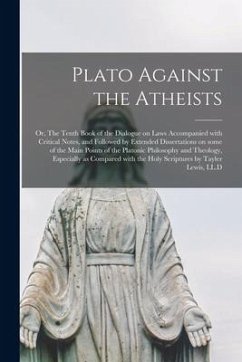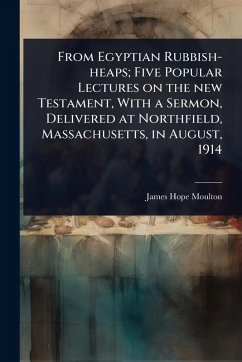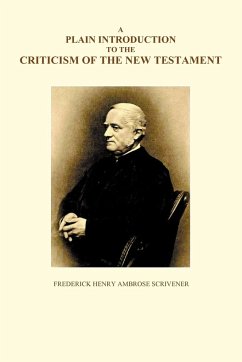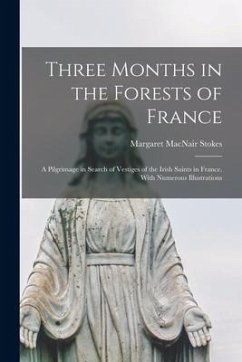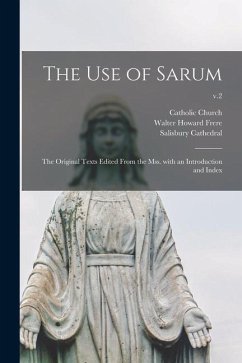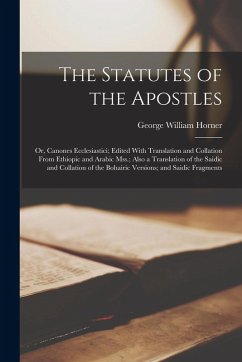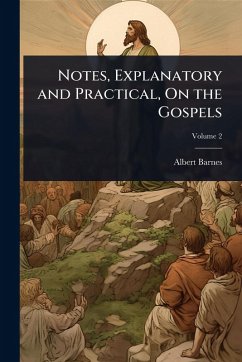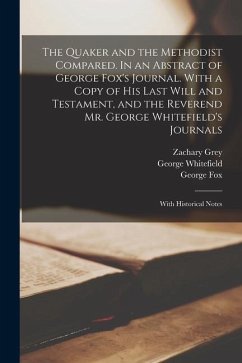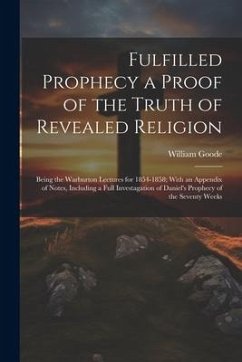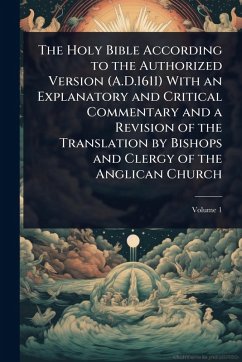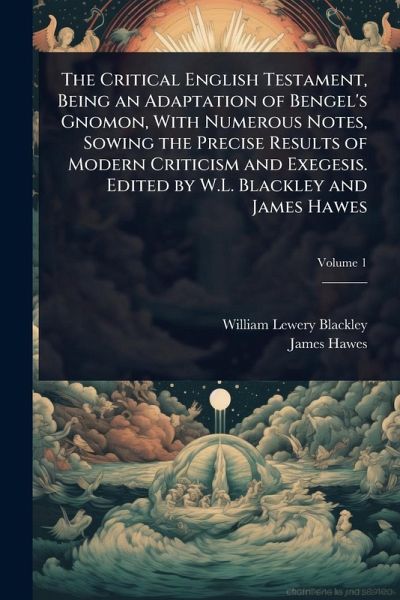
The Critical English Testament, Being an Adaptation of Bengel's Gnomon, With Numerous Notes, Sowing the Precise Results of Modern Criticism and Exegesis. Edited by W.L. Blackley and James Hawes

PAYBACK Punkte
16 °P sammeln!
The Critical English Testament is an adaptation of Bengel's Gnomon, meticulously edited by W.L. Blackley and James Hawes. This edition presents numerous notes showcasing the precise results of modern criticism and exegesis. Volume 1 offers a detailed examination of the New Testament, providing profound insights into the original Greek text and its interpretations. Scholars and theologians will find this volume an invaluable resource for understanding the nuances of scripture and the historical context in which it was written. This edition seeks to make Bengel's seminal work accessible to a wid...
The Critical English Testament is an adaptation of Bengel's Gnomon, meticulously edited by W.L. Blackley and James Hawes. This edition presents numerous notes showcasing the precise results of modern criticism and exegesis. Volume 1 offers a detailed examination of the New Testament, providing profound insights into the original Greek text and its interpretations. Scholars and theologians will find this volume an invaluable resource for understanding the nuances of scripture and the historical context in which it was written. This edition seeks to make Bengel's seminal work accessible to a wider audience, offering both a historical perspective on biblical scholarship and a practical guide for contemporary study. The editors' dedication to precision and clarity ensures that this remains a relevant and insightful contribution to theological discourse. This work has been selected by scholars as being culturally important, and is part of the knowledge base of civilization as we know it. This work was reproduced from the original artifact, and remains as true to the original work as possible. Therefore, you will see the original copyright references, library stamps (as most of these works have been housed in our most important libraries around the world), and other notations in the work. This work is in the public domain in the United States of America, and possibly other nations. Within the United States, you may freely copy and distribute this work, as no entity (individual or corporate) has a copyright on the body of the work. As a reproduction of a historical artifact, this work may contain missing or blurred pages, poor pictures, errant marks, etc. Scholars believe, and we concur, that this work is important enough to be preserved, reproduced, and made generally available to the public. We appreciate your support of the preservation process, and thank you for being an important part of keeping this knowledge alive and relevant.



